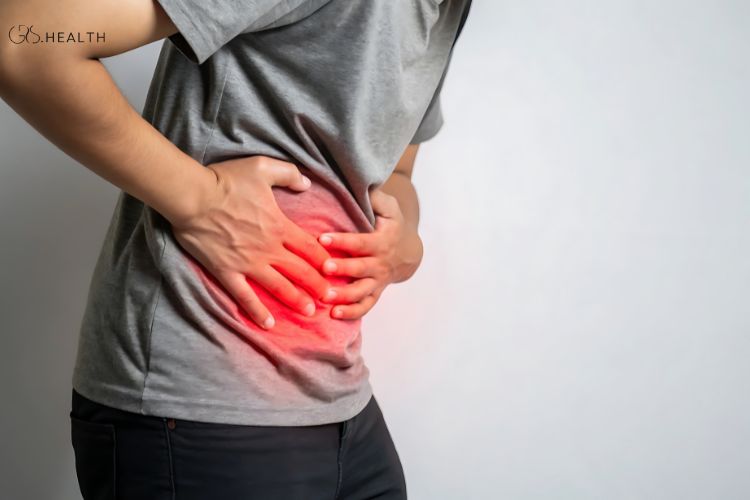When someone experiences chest pain, the first thought is often the worst-case scenario: a heart attack. But in many cases, the pain is not cardiac at all — it originates from anxiety.One of the most distressing physical symptoms of anxiety is chest pain, often referred to as anxiety chest pain. This article explores how anxiety can cause chest pain, how to distinguish it from cardiac causes, and how it can be managed scientifically and effectively.
What Is Anxiety Chest Pain?
Anxiety chest pain refers to chest discomfort caused by mental or emotional stress rather than a physical heart issue. The pain can feel sharp, stabbing, tight, or even like a burning sensation. It can occur suddenly or gradually and may radiate to other parts of the body like the arms, shoulders, or jaw.
People often describe this pain as:
- Sharp or stabbing
- Tightness or pressure across the chest
- A heavy feeling, like something is pressing down on the chest
- A burning sensation, often mistaken for heartburn or angina
This pain can occur during intense stress, panic attacks, or even without any specific trigger.

How Does Anxiety Cause Chest Pain? (Scientific Explanation)
To understand anxiety chest pain, we must look at the physiological response to stress. Anxiety activates the body’s “fight-or-flight” response, which prepares the body to confront or escape perceived danger.
Here’s what happens:
- Stress hormones such as adrenaline and cortisol are released, which increase your heart rate and blood pressure.
- Muscle tension, especially in the chest and back, can lead to soreness or a tight feeling.
- Rapid breathing (hyperventilation) changes oxygen and carbon dioxide levels in the blood, which may cause dizziness, chest tightness, and tingling.
- Esophageal spasms, triggered by anxiety, can cause pain that mimics heart pain.
These physical reactions are real, and although they are caused by anxiety, the resulting pain can feel just as severe as a cardiac event.
(If you would like to learn more about the causes of anxiety, We suggest reading this article.)

Anxiety Chest Pain vs. Heart-Related Chest Pain
It’s essential to distinguish between chest pain caused by anxiety and pain from a heart condition. Here’s how they often differ:
- Onset: Anxiety-related chest pain usually comes on suddenly during a stressful event or panic attack. In contrast, heart-related pain may come on gradually, often triggered by physical exertion or emotional strain.
- Type of Pain: Anxiety chest pain is often sharp or stabbing and localized. Heart-related pain typically feels like a dull pressure or squeezing, often spreading to other areas such as the left arm, jaw, or neck.
- Duration: Pain from anxiety usually lasts a few minutes and tends to ease with relaxation. Cardiac pain typically lasts longer and may not go away with rest.
- Associated Symptoms: Anxiety chest pain may be accompanied by rapid breathing, fear of dying, dizziness, and tingling sensations. In contrast, heart-related symptoms often include cold sweats, nausea, and significant shortness of breath.
Despite these general differences, they are not foolproof. If you’re experiencing chest pain for the first time, or it feels severe or unusual, it’s crucial to seek emergency medical attention.
What Does the Research Say?
Scientific research confirms a strong link between anxiety and non-cardiac chest pain.
- A 2020 meta-analysis published in the Journal of Psychosomatic Research revealed that up to 30% of people who present to emergency rooms with chest pain are diagnosed with non-cardiac chest pain, with anxiety being a leading cause.
- A study in the American Journal of Medicine (2017) found that individuals with panic disorder are three times more likely to experience chest pain than those without the disorder.
- Another study published in BMJ Open (2018) highlighted how misdiagnosing anxiety chest pain as a heart problem can lead to repeated emergency visits, unnecessary tests, and increased healthcare costs.
These findings emphasize that anxiety chest pain is real, common, and medically significant.
Who’s Most at Risk of Anxiety Chest Pain?
Some individuals are more likely to experience chest pain due to anxiety, including:
- People with generalized anxiety disorder (GAD)
- Those diagnosed with panic disorder
- Individuals with post-traumatic stress disorder (PTSD)
- People with high levels of stress or health anxiety
That said, even those without a formal anxiety diagnosis can experience this type of pain during intense emotional stress or panic.
Diagnosis: How Doctors Identify Anxiety Chest Pain
When someone reports chest pain, doctors usually focus first on ruling out heart disease or other serious causes. Common tests include:
- Electrocardiogram (ECG) to evaluate heart rhythm
- Blood tests, such as troponin levels, to detect heart damage
- Chest X-ray or echocardiogram
- Stress tests
If all these tests are normal, and the symptoms fit a psychological profile, a diagnosis of non-cardiac chest pain related to anxiety may be made. The patient may then be referred to a mental health professional for further evaluation and treatment.
Managing and Treating Anxiety Chest Pain
Short-Term Relief Strategies:
- Deep Breathing Exercises: Helps regulate oxygen levels and calm the nervous system.
- Grounding Techniques: Focusing on the present moment using senses (e.g., the 5-4-3-2-1 method).
- Muscle Relaxation: Progressive muscle relaxation can relieve tension in the chest and shoulders.
- Reassurance and Self-talk: Remind yourself the pain is not dangerous and will pass.
Long-Term Treatment:
- Cognitive Behavioral Therapy (CBT): One of the most effective treatments for anxiety and panic disorders.
- Mindfulness and Meditation: Regular practice reduces stress and increases emotional control.
- Physical Exercise: Regular activity helps manage anxiety and improves cardiovascular health.
- Medications:
- SSRIs (Selective Serotonin Reuptake Inhibitors) such as fluoxetine or sertraline
- Benzodiazepines for short-term use (with caution)
- Lifestyle Adjustments: Avoid caffeine, ensure consistent sleep, and reduce exposure to chronic stressors.
A combination of psychotherapy, medication, and lifestyle changes provides the best results in reducing both anxiety and its physical symptoms, including chest pain.
Is Anxiety Chest Pain Dangerous?
While anxiety chest pain is not dangerous in itself, chronic anxiety can have long-term effects on health if left untreated, such as:
- High blood pressure
- Increased risk of heart disease over time
- Sleep disturbances and chronic fatigue
- Impaired immune function
Additionally, the fear of experiencing anxiety chest pain can lead to avoidance behaviors — avoiding exercise, travel, or social interaction — which further reinforce anxiety and worsen mental health.
When to See a Doctor
You should seek immediate medical attention if:
- It’s your first time experiencing chest pain
- The pain lasts more than a few minutes or keeps returning
- You have symptoms like fainting, sweating, or pain radiating to your arm or jaw
- You have a history of heart disease or high cardiovascular risk
Even if the cause turns out to be anxiety, medical evaluation is essential to rule out other serious issues.
Conclusion
Yes,anxiety can cause chest pain. It may not be related to the heart, but the pain is real and can be frightening. Understanding the mind-body connection is key to recognizing and managing anxiety chest pain effectively.
With proper diagnosis, psychological support, and lifestyle changes, people can break the cycle of fear, stress, and physical symptoms. Early intervention not only reduces unnecessary hospital visits but also helps improve long-term mental and physical well-being.
Sources
- National Institute of Mental Health, Panic Disorder: When Fear Overwhelms
- American Psychological Association, Anxiety
- BMJ Open , A prospective cohort study to refine and validate the Panic Screening Score for identifying panic attacks associated with unexplained chest pain in the emergency department
- National Library of Medicine, Anxiety disorders in patients with noncardiac chest pain: association with health-related quality of life and chest pain severity










